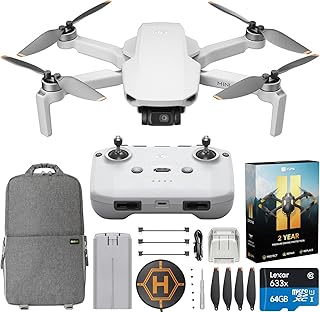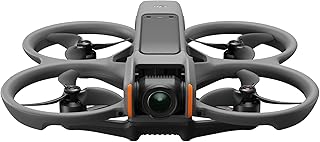The Future of DJI Drones: What's Next for the Industry?
DJI, the dominant force in the consumer drone market, has already revolutionized the industry, but their future remains bright with potential for innovation and expansion. Here's a look at what's next for DJI and the drone industry:
1. Advancements in Technology:
* AI & Automation: Drones will become increasingly intelligent, capable of autonomous flight, obstacle avoidance, and even object recognition. This opens doors for tasks like inspection, surveillance, and delivery, making drones even more versatile.
* Improved Battery Life: Longer flight times are crucial for practical applications. Battery technology is constantly evolving, promising longer endurance and faster charging.
* Enhanced Camera Systems: DJI is already known for its exceptional camera technology, but expect further advancements in sensor size, image quality, and resolution.
* Integration with 5G: Faster data transfer speeds enabled by 5G will allow for real-time data analysis and control, crucial for applications like drone delivery and aerial surveillance.
2. Expansion into New Markets:
* Delivery & Logistics: Drone delivery is gaining traction, with companies like Amazon and UPS experimenting with this technology. DJI is likely to play a major role in this space, providing both hardware and software solutions.
* Agriculture & Farming: Drones are already used for crop monitoring and spraying. Expect further development in areas like precision agriculture, automated planting, and livestock management.
* Construction & Infrastructure: Drones can be used for surveying, inspection, and even 3D modeling of large structures, streamlining construction processes.
* Public Safety & Emergency Response: Law enforcement agencies are already using drones for surveillance and search and rescue operations. This area will continue to grow, with drones playing a more prominent role in emergency response.
3. Focus on Safety & Regulations:
* Regulations & Safety Standards: The industry is facing increasing scrutiny regarding safety and privacy. DJI will need to work with regulators to develop clear guidelines and standards for drone operation.
* Anti-Drone Technology: As drone use grows, so too will the need for anti-drone technology. DJI might develop its own countermeasures to combat unauthorized drone activity.
* Privacy Concerns: Addressing privacy concerns is crucial. Expect DJI to introduce new features like geofencing and data encryption to safeguard user privacy.
4. Competitor Landscape:
* Increased Competition: The drone market is becoming increasingly competitive, with new players emerging from China and other regions. DJI needs to innovate and maintain its market leadership.
* Open-Source Software & Hardware: The rise of open-source platforms could challenge DJI's dominance. Expect DJI to continue developing its own ecosystem while exploring partnerships and open-source solutions.
5. Social Impact:
* Job Creation & Economic Growth: The drone industry is creating new jobs in areas like drone piloting, software development, and data analysis.
* Environmental Sustainability: Drones have the potential to contribute to a more sustainable future, reducing emissions and improving efficiency in various industries.
Overall, the future of DJI drones looks bright. The company is at the forefront of a rapidly evolving industry with immense potential. By embracing innovation, staying ahead of regulations, and addressing societal concerns, DJI can continue to shape the future of drones and pave the way for a more connected and efficient world.


